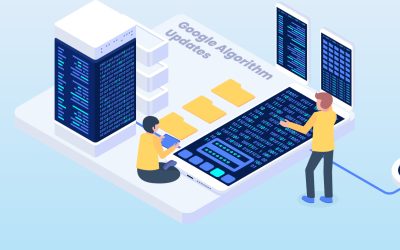AI-driven content creation has revolutionized the way we generate written material, transforming industries ranging from marketing to journalism. In this era of digital content dominance, two prominent AI models stand out for their remarkable abilities: Google Bard and Chat GPT. These advanced language models have the power to generate high-quality, human-like text, making them invaluable tools for content creation. In this post, we delve into the world of AI for content marketing and compare the strengths and weaknesses of Google Bard and Chat GPT. Join us on a journey through the cutting-edge landscape of AI-driven content generation as we explore the capabilities, applications, and unique features of these two game-changing models.
How AI Can Support Content Creators at Different Stages
- Idea Generation and Research:
Topic Suggestions: AI tools can analyze trending topics and user interests to provide content topic suggestions.
Content Research: AI can help content creators find relevant sources, statistics, and information quickly.
Competitive Analysis: AI can analyze competitors’ content to identify gaps and opportunities.
- Content Planning and Organization:
Content Outlining: AI can generate content outlines based on selected topics or keywords.
Editorial Calendar: AI-powered tools can help creators plan content calendars, considering publication frequency and timing.
- Writing and Drafting:
Text Generation: AI models like GPT-3 can assist in writing articles, blog posts, product descriptions, and more.
Grammar and Style Checking: AI-driven tools such as Grammarly can provide real-time grammar and style suggestions.
Voice Typing: AI-based voice recognition systems can transcribe spoken ideas into text efficiently.
- Content Editing and Proofreading:
Automated Proofreading: AI can help writers correct errors in grammar, spelling, and punctuation.
Style and Tone Suggestions: AI can provide recommendations for improving clarity and style.
- Content Optimization:
SEO Recommendations: AI can analyze content for SEO improvements, suggesting keywords, meta tags, and content length adjustments.
A/B Testing: AI-driven A/B testing tools can optimize content performance by experimenting with different headlines, images, and layouts.
- Visual Content Creation:
Image Generation: AI tools can create custom images, infographics, and visuals based on content themes.
Video Editing: AI-powered video editing software can automate tasks like scene recognition, captioning, and video creation from text.
- Translation and Localization:
Translation: AI can quickly translate content into multiple languages, making it accessible to a global audience.
Localization: It can adapt content to specific regions, considering cultural nuances and preferences.
- Content Promotion and Distribution:
Social Media Scheduling: AI can automate the scheduling and posting of content on social media platforms.
Email Marketing: AI can personalize email content based on recipient behavior and preferences.
- Performance Analytics:
Content Analytics: AI-driven analytics tools can provide insights into content performance, helping creators understand what works and what needs improvement.
Recommendations for Improvement: AI can offer suggestions for optimizing content based on performance data.
- Content Monetization:
Ad Placement: AI algorithms can optimize ad placement within content to maximize revenue.
Subscription Models: AI can help creators identify and implement subscription-based content strategies.
- Audience Engagement and Interaction:
Chatbots and Virtual Assistants: AI-powered chatbots can engage users on websites, answer questions, and provide support.
Personalized Content: AI can analyze user data to deliver personalized content recommendations on websites and platforms.
- Content Maintenance and Updates:
Content Auditing: AI can help identify outdated or inaccurate content that needs updating.
Recommendations for Refreshing Content: AI can suggest changes or additions to keep content relevant.
By integrating AI into each stage of the content development process, creators can save time, reduce errors, and improve the overall quality and effectiveness of their content. AI tools can also free up creative energy, allowing content creators to focus on what they do best: producing engaging and valuable content for their audiences.
Chat GPT vs. Google’s Bard
Google Bard and ChatGPT are two notable AI models that have been developed for this purpose. Let’s compare them in terms of their capabilities, use cases, and advantages.
Google Bard
- Content Generation Focus: Google Bard is specifically designed for content generation, particularly in the field of poetry and creative writing. It aims to assist writers and poets in crafting artistic pieces of text.
- Limited Scope: Its primary strength lies in creative writing tasks, making it less versatile for a wide range of content creation tasks.
- Creativity Emphasis: Google Bard is known for its creative flair, as it can generate imaginative and artistic content. It often produces poetry and creative writing that is highly poetic and expressive.
- Use Cases: Google Bard is best suited for creative writing tasks, including generating poems, short stories, or creative prose. It’s not optimized for more factual or technical content.
- Human-AI Collaboration: Users typically collaborate with Google Bard to enhance creative content. It can provide creative suggestions or even compose sections of poetry or prose that writers can incorporate into their work.
ChatGPT
- Versatile Content Creation: ChatGPT, on the other hand, is a more versatile AI model. It can be used for a wide range of content creation tasks, including answering questions, generating articles, coding assistance, and more.
- General-Purpose AI: ChatGPT is designed to provide human-like text-based responses across various domains, making it a versatile tool for businesses and individuals.
- Practical and Informational Focus: While ChatGPT can exhibit creativity, its primary strength lies in providing practical and informational responses. It excels at answering questions, explaining complex topics, and generating informative content.
- Use Cases: ChatGPT can be used for a broad spectrum of applications, including customer support chatbots, content creation, research assistance, and brainstorming ideas.
- Human-AI Collaboration: Users often interact with ChatGPT in a conversational manner, making it a valuable tool for engaging with customers, assisting users, and providing information.
Advantages of Google Bard
|
Advantages of ChatGPT
|
While ChatGPT and similar AI models have numerous advantages, they also come with several disadvantages and limitations:
- Lack of Contextual Understanding: ChatGPT does not have a deep understanding of context, which can lead to responses that are contextually incorrect or nonsensical. It may generate plausible-sounding but inaccurate information.
- Bias and Controversial Content: AI models like ChatGPT can inadvertently generate biased or controversial content, as they learn from data on the internet, which may contain biases. This can perpetuate stereotypes or provide inappropriate responses.
- Inability to Verify Information: ChatGPT can produce information that is not fact-checked, leading to the spread of false or misleading information. Users must exercise caution and verify information obtained from AI models.
- Lack of Creativity: While ChatGPT can generate text, it lacks true creativity and the ability to generate truly novel or imaginative content. It often rehashes existing information and patterns.
- Repetitive Responses: The model may generate repetitive responses, especially when faced with similar queries, which can be frustrating for users.
- Difficulty with Complex Tasks: ChatGPT may struggle with complex or multifaceted tasks that require deep reasoning, critical thinking, or in-depth domain knowledge.
- Sensitive Content: AI models can generate content that is sensitive or inappropriate, which is a concern, especially when used in public forums or customer service applications.
- Privacy Concerns: When used in applications that involve personal data, there can be concerns about user privacy, data security, and the potential for misuse.
- Lack of Emotional Understanding: ChatGPT lacks emotional understanding and empathy. It may not respond appropriately to users’ emotional or sensitive issues.
- Resource Intensive: Running large AI models like ChatGPT requires significant computational resources, which can be costly and environmentally demanding.
- Not a Substitute for Human Expertise: AI models like ChatGPT should not be seen as a replacement for human expertise, especially in fields where human judgment, ethics, and empathy are crucial.
- Limited Long-term Context: ChatGPT has difficulty maintaining context over long conversations, often providing less coherent responses as a conversation progresses.
- Language Limitations: It primarily works well in English and a few other languages. For languages with less training data, its performance may be limited.
- Ethical Dilemmas: Using AI in various applications, such as customer service or content generation, can raise ethical questions about transparency, accountability, and the responsible use of technology.
In summary, the choice between Google Bard and ChatGPT depends on your specific content creation needs. If you’re primarily interested in creative writing and artistic content, Google Bard’s creative capabilities may be appealing. However, if you require a more versatile AI model for a broader range of content creation and informational tasks, ChatGPT’s flexibility and practicality make it a strong choice. Ultimately, the choice should align with your specific use cases and objectives.
Can ChatGPT, BARD and Other AI Models Replace Search Engines?
ChatGPT and BARD, like other AI models, have specific capabilities and limitations that prevent them from replacing traditional search engines. Here are some reasons why they may not be able to serve as full substitutes for search engines:
Information Retrieval vs. Conversation:
Search Engines: Search engines are designed primarily for information retrieval. They provide a list of relevant web pages based on keywords or queries, making them efficient for quick access to a wide range of information.
ChatGPT and BARD: These models are designed for natural language conversations. While they can provide information, they are more suited for interactive dialogues and may not efficiently retrieve information in the same way search engines do.
Scope of Information:
Search Engines: Search engines index a vast amount of web content, including websites, articles, images, videos, and more, offering comprehensive access to the internet’s knowledge.
ChatGPT and BARD: These models generate responses based on pre-trained knowledge and may not provide as broad a scope of information as search engines. Their responses are limited to what they’ve learned during training.
Specificity of Queries:
Search Engines: Users can enter highly specific queries and receive relevant results. Search engines use complex ranking algorithms to determine the most relevant content.
ChatGPT and BARD: Conversational AI models may struggle with very specific or technical queries, as they rely on general knowledge and may not have access to up-to-date or specialized information.
Real-time Information:
Search Engines: Search engines can provide real-time information, news updates, and live data, making them suitable for current events and trends.
ChatGPT and BARD: These models may not provide real-time information as they do not continuously crawl the web or access live databases.
User Intent and Interaction:
Search Engines: Users typically have a clear intent when using search engines, whether it’s finding information, making a purchase, or seeking directions. Search engines provide results accordingly.
ChatGPT and BARD: These models engage in conversation and may not always understand or fulfill user intent effectively, leading to more interactive and conversational responses rather than direct information retrieval.
Monetization and Advertising:
Search Engines: Search engines generate revenue through advertising and sponsored listings, a business model that may not apply to conversational AI models.
ChatGPT and BARD: These models are primarily designed for generating text based on user inputs and may not integrate advertising as a core feature.
ChatGPT and BARD are powerful AI models for natural language understanding and generation, they serve a different purpose than search engines. Search engines excel at providing a wide range of information quickly and efficiently, while conversational AI models are designed for interactive conversations and may not be as efficient for traditional information retrieval tasks. Both have their roles, and they can complement each other in providing a well-rounded online experience.
AI Tools vs. Human Expertise for SEO
AI tools can enhance and streamline many aspects of SEO (Search Engine Optimization) but are unlikely to completely replace the need for human expertise and oversight. Here’s why:
Algorithm Updates: Search engines like Google regularly update their algorithms to provide better search results. AI can help adapt to these changes faster than manual methods, but human SEO professionals are still required to understand the updates and adjust strategies accordingly.
Content Quality: AI can generate content, but it might not always produce high-quality, relevant, and engaging content that resonates with human audiences. Skilled content creators are essential for crafting content that aligns with a brand’s voice and effectively communicates with users.
Strategy and Analysis: AI tools can help with data analysis, keyword research, and identifying trends. However, the strategic aspect of SEO, such as setting goals, devising long-term strategies, and making informed decisions based on data, requires human expertise.
User Experience: User experience (UX) is a critical factor in SEO. AI can help optimize websites for UX by analyzing user behavior, but decisions about site design, navigation, and user interaction often require human input.
Ethical Considerations: AI-generated content can raise ethical concerns, especially when it comes to misinformation, plagiarism, or biased content. Human oversight is necessary to ensure that the content adheres to ethical and legal guidelines.
Local SEO and Context: Understanding local nuances, cultural differences, and the context of specific markets often requires human insights and local knowledge that AI may not possess.
While AI tools are incredibly valuable for automating routine tasks, improving data analysis, and staying updated with search engine algorithms, they are best viewed as complementary to human expertise in SEO. The combination of AI and human intelligence can create a powerful synergy that optimizes websites, content, and strategies for the best possible SEO outcomes.
Digital Marketing Companies for SEO Content Development
A digital marketing company can play a crucial role in assisting businesses with their content development needs in several ways:
- Content Strategy: Digital marketing agencies can help businesses develop a comprehensive content strategy aligned with their goals and target audience. This involves determining the types of content needed, frequency of publication, and the channels for distribution.
- Content Creation: These agencies often have teams of content creators, including writers, designers, and video producers, who can produce high-quality content. This content can encompass blog posts, articles, social media updates, videos, infographics, and more.
- Keyword Research: They conduct keyword research to identify relevant search terms and phrases that can boost a business’s visibility on search engines. This is vital for SEO (Search Engine Optimization).
- Content Optimization: Digital marketing experts optimize content for search engines and user experience. They ensure that content is well-structured, includes relevant keywords, and provides value to the audience.
- Content Distribution: Agencies have the expertise to promote content effectively across various online channels. This includes sharing content on social media, email marketing, influencer partnerships, and paid advertising campaigns.
- Analytics and Performance Tracking: They use analytics tools to measure the performance of content marketing efforts. This includes tracking website traffic, engagement metrics, conversion rates, and ROI (Return on Investment).
- A/B Testing: Agencies often run A/B tests to refine content strategies and improve performance over time. This involves testing different content variations to see what resonates best with the audience.
- Content Calendar Management: They create and manage content calendars to ensure a consistent and organized publishing schedule. This helps in maintaining audience engagement and SEO rankings.
- Repurposing Content: Digital marketing companies can repurpose existing content into different formats to reach a wider audience. For example, turning a blog into a video or an infographic.
- Adaptation to Trends: Staying updated with the latest trends in content marketing is crucial. Digital marketing agencies can help businesses adapt to new trends and technologies, such as voice search optimization or interactive content.
- Content Performance Reporting: They provide regular reports and insights on the performance of content marketing efforts, helping businesses understand what works and what needs improvement.
- Content Compliance: Ensuring that content complies with legal and ethical standards is essential. Digital marketing agencies can help businesses navigate content compliance issues.
When looking to enhance their online presence, many businesses turn to professional content writing services to create engaging and informative website content. Digital marketing companies also leverage the power of AI tools to develop excellent content. In essence, a digital marketing company acts as a partner in developing and executing a content strategy that aligns with a business’s objectives. Leveraging expertise and resources for effective content marketing can indeed help businesses enhance their online presence, engage their target audience, and drive growth.




